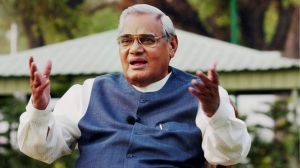Walls and laws
By allowing foreign lawyers to conduct temporary business in India,the high court opens a window
By allowing foreign lawyers to conduct temporary business in India,the high court opens a window
The Madras high court has brought some clarity to the vexed question of what foreign lawyers may and may not do in India. It has ruled they are allowed temporary fly-in,fly-out stints,to advise on international law,and participate in negotiations and arbitration proceedings.
Foreign law firms have been clanging the gates since the 1990s and back then,the RBI had allowed three firms Chadbourne amp; Parke,Ashurst Morris Crisp,and White amp; Case to set up liaison offices. This was bitterly resisted. Though successive law ministers have voiced their commitment to opening up the legal market,and suggested its just round the corner,sustained opposition from domestic law firms and a protectionist Bar Council have stymied it. Those who argue for it say that such legal practice falls in the services sector and India is bound under WTO to liberalise it. However,in 2009,after 14 years to mull the issue,the Bombay HC upheld the Lawyers Collectives challenge to the RBIs permission,ruling the Advocates Act 1961 applied to litigation as well as non-litigation practice,and non-Indian nationals can enrol as advocates in India only if,reciprocally,their country allows Indian lawyers to practice in the same manner there. Foreign law firms have circumvented Indian rules in many inventive ways crafting Best Friends agreements with Indian firms,employing extensive India practices,etc. However,in 2010,31 foreign law firms and a legal process outsourcing company were hauled to court by a Chennai lawyer,A.K. Balaji,who claimed they were still operating in India,overtly and covertly,and thats what the Madras HC has just ruled on.
This verdict clears up some of the haze surrounding the subject for instance,it was unclear what constitutes practice how the duration and frequency of visits by a foreign lawyer would be counted,what kind of work was allowed,whether they were allowed to have a workplace in India,etc. The Madras HC has sensibly ruled short visits dont amount to a practice. Of course,the Advocates Act would have to be amended if the legal market is to be genuinely liberalised and that should be a matter of when,not if,in the interests of greater competition,better employment prospects for lawyers,and global expertise.
- 01
- 02
- 03
- 04
- 05































